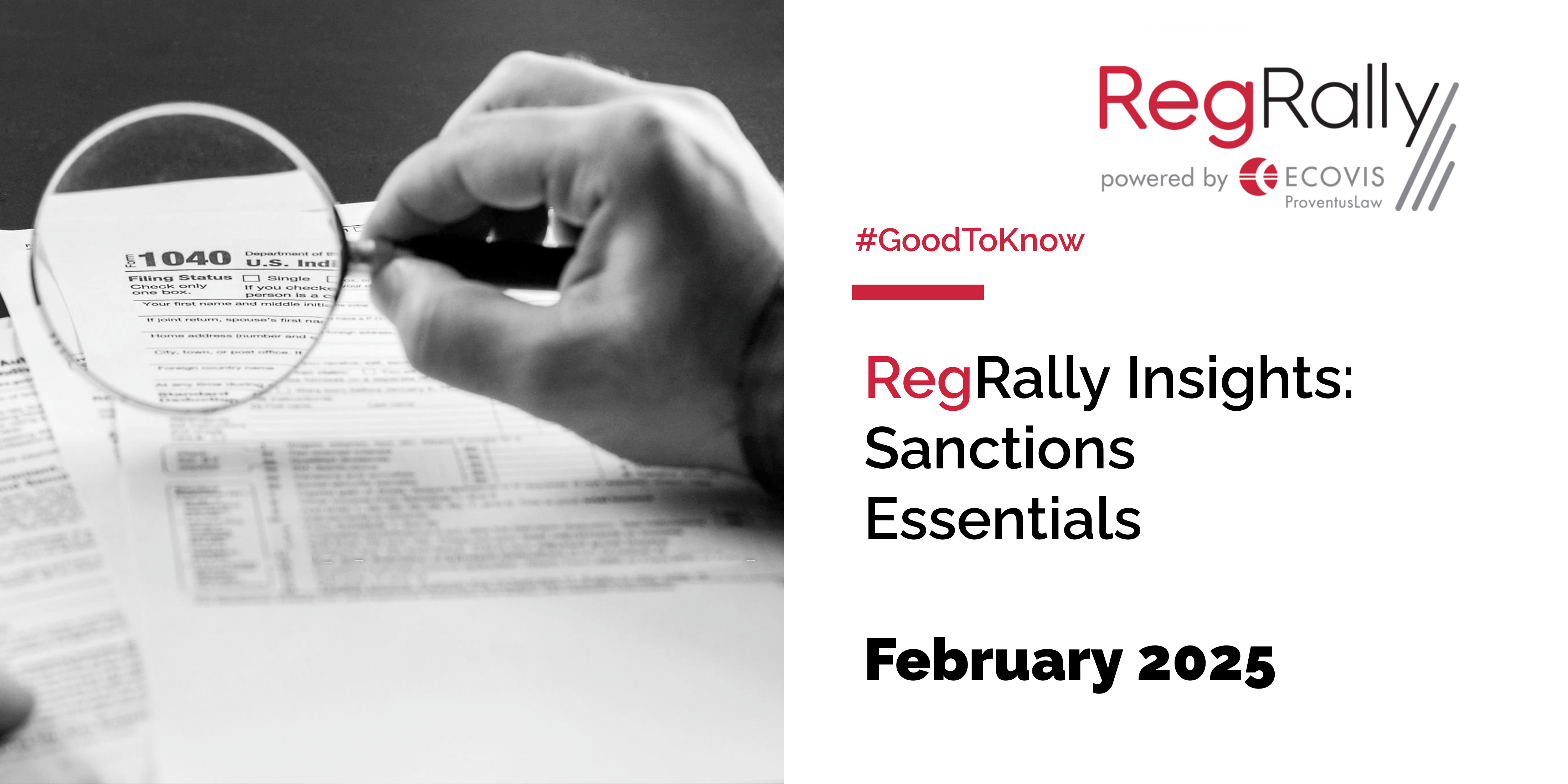ECOVIS ProventusLaw welcomes you to its monthly newsletter on Sanctions, which is dedicated to everyone who wants to understand the latest trends and developments, get tips from our experts, and deepen their knowledge.
EU Imposes Sanctions on Russian Individuals for 2020 Cyberattacks Against Estonia
The EU has imposed sanctions on three Russian individuals linked to a 2020 cyberattack against Estonia, attributed to GRU Unit 29155. The attack targeted government ministries, stealing classified data and compromising security. This unit is also responsible for similar actions against other EU countries and Ukraine, as well as destabilising activities like assassinations and bombings. The sanctions include asset freezes, travel bans, and restrictions on EU entities providing funds. These measures underscore the EU’s commitment to addressing cyber threats and countering Russia’s hybrid tactics, which is in line with frameworks established in 2017 and 2019.
EU Extends Economic Sanctions Against Russia
On January 27, 2025, the Council of the European Union extended its economic restrictive measures against Russia until July 31, 2025, in response to Russia’s ongoing destabilisation of Ukraine.
Initially imposed in 2014 and significantly expanded after Russia’s military aggression in February 2022, these sanctions target trade, finance, energy, technology, and media sectors. Key measures include:
- Import bans on Russian seaborne crude oil and petroleum products
- Exclusion of several Russian banks from the SWIFT system
- Suspension of Kremlin-backed media activities in the EU
- Provisions against circumvention of sanctions
The EU remains committed to supporting Ukraine’s sovereignty and providing sustained political, financial, humanitarian, and military assistance.
Compliance Recommendations
- Conduct Due Diligence: Assess clients and counterparties for ties to Russia to avoid prohibited activities.
- Staff Training: Educate teams on the sanctions framework and the risks of circumvention.
- Audit and Reporting: Implement systems to detect, audit, and report potential breaches to regulators.
U.S. Imposes Sanctions on Russia’s Energy Sector to Curb War Funding
On January 10, 2025, the U.S. Department of the Treasury imposed sanctions on Russia’s energy sector under Executive Order (E.O.) 14024. The measures target major oil producers Gazprom Neft and Surgutneftegas, 183 oil vessels, and traders involved in illicit oil exports. Additionally, U.S. petroleum services related to Russian crude oil production will be prohibited under E.O. 14071, effective February 27, 2025. These sanctions, coordinated with the UK, aim to decrease Russia’s energy revenues, which are used to fund its ongoing war in Ukraine. Additional sanctions also target oilfield service providers and senior Russian energy officials.
UK and Canada Sanction Belarusian Individuals and Defence Entities
The United Kingdom, in coordination with Canada, has imposed sanctions on 9 individuals and defence entities in Belarus following the fraudulent presidential election. These sanctions target key figures, including Igor Karpenko, Chairman of the Belarusian Central Election Commission, and others involved in political persecution and human rights violations. The measures also target Belarusian defence companies, such as Alevkurp OJSC and Legmash Plant JSC, which support Russia’s ongoing war in Ukraine. The UK condemned the election as undemocratic, reaffirming its commitment to supporting the Belarusian people and countering the Lukashenko regime’s repression.
UK Updates Sanctions List, Amends Entry for Gazprom Neft
On January 15, 2025, the UK Foreign, Commonwealth, and Development Office updated the UK Sanctions List, reflecting changes under the Russia (Sanctions) (EU Exit) Regulations 2019. The updated list includes amended details for Gazprom Neft, subject to asset freezes and sanctions on trust services. These regulations, enacted under the Sanctions and Anti-Money Laundering Act 2018, impose financial sanctions on individuals and entities involved in destabilising Ukraine or supporting the Russian government, continuing the UK’s efforts to hold accountable those contributing to Russia’s aggression.
UK Updates Sanctions List, Amends Entry for Domingo Antonio Hernandez Larez
On January 17, 2025, the UK Foreign, Commonwealth, and Development Office updated the UK Sanctions List, reflecting changes under the Venezuela (Sanctions) (EU Exit) Regulations 2019. The updated list includes amended details for Domingo Antonio Hernandez Larez, who remains subject to an asset freeze. These regulations, enacted under the Sanctions and Anti-Money Laundering Act 2018, target individuals involved in serious human rights violations, repression of civil society, or actions undermining democracy in Venezuela, continuing the UK’s commitment to holding perpetrators accountable.
UK Supreme Court Hears Appeal on Detention of Russian-linked Superyacht
On January 16, 2025, the UK Supreme Court heard an appeal brought by Dalston Projects Ltd and other parties, challenging the decision of the UK Secretary of State for Transport (SST) to detain the superyacht “the Phi” under the UK’s Russia sanctions regime. The yacht’s beneficial owner, Sergei Naumenko, is not currently subject to UK sanctions. The appeal questions whether the SST’s decision to seize the yacht should be annulled on human rights or public law grounds. The court’s judgment is pending.


 Newsletter Subscription
Newsletter Subscription